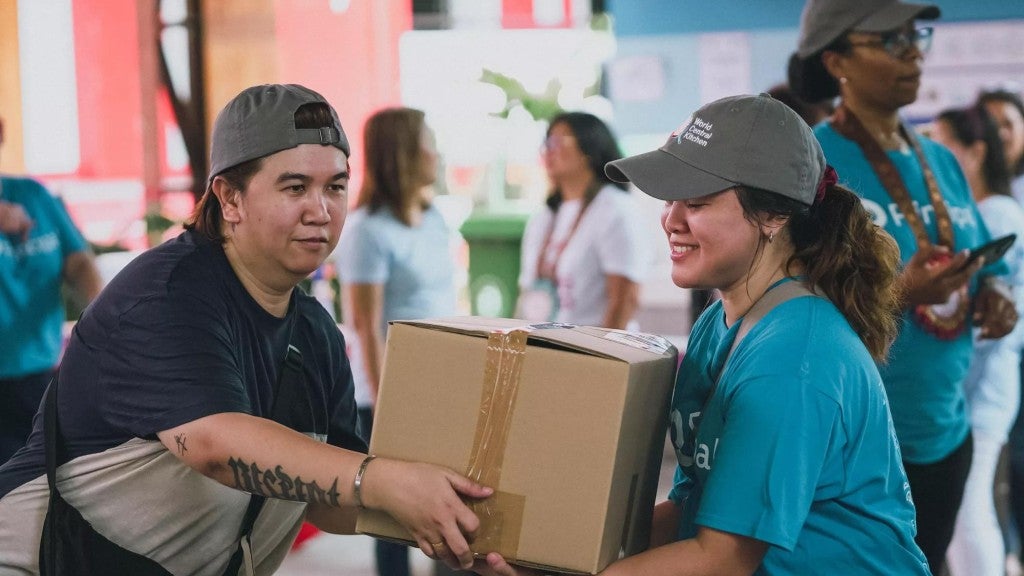How do people know who you are?
Some cues are obvious—hair color and height, for example—but others, less so. Say, for example, that you’re married. If you wear a wedding ring, that presents a sign to others. If you don’t, strangers may make a quick (and potentially inaccurate) assumption about your relationship status.
Now, imagine being a member of the LGBTQIA+ community. What assumptions might others make if they don’t know you, but you come out? And how can community allies create safer, more inclusive spaces? At Principal® , it’s often about taking an expansive view to ensuring people feel connected and comfortable.
Challenges to safety
Comfort and connections—not just during Pride month in June but beyond—have become even more important of late. In 2023 alone, nearly 500 anti-LGBTQIA+ bills were proposed or passed, targeting everything from gender information on birth certificates to nondiscrimination protection and access to certain books.1
The LGBTQIA+ community also faces additional barriers, including legal impediments, to financial security. For example, 37% of LGBTQIA+ households have difficulty paying for usual household expenses, versus 26% of non-LGBTQIA+ adults.2 Some employers still don’t offer health insurance to same-sex spouses.3 More than one in four transgender people reported losing a job due to bias.4 Same-sex couples that decide to pursue parenthood generally experience higher medical and legal fees throughout the process.5
Fears for the future
Cal Solverson, who identifies as transgender/non-binary and uses they/them pronouns, describes coming out as a never-ending process. They were outed as gay in high school by a classmate and came out a second time in college as trans. “When I came out as trans, I finally had the vocabulary I was missing my entire life to understand myself,” says Solverson, a plan reporting specialist at Principal.
Many of the assumptions that people take for granted—pronouns, for example—aren’t ones that Solverson can rely on. “I know I need to say ‘Hi, my name is Cal, I use they/them pronouns’ to protect myself and help people address me correctly,” they say.
Anti-trans legislation enacted in 2023 in Iowa, Solverson’s home and site of Principal global headquarters, has unmoored them even more. “Coming out as trans was a lot scarier than coming out as gay because I felt like being gay was starting to become acceptable in society—and I don’t necessarily feel the same way about being trans, especially recently,” Solverson says.
Inclusion in progress
Principal has a long history of supporting the LGBTQIA+ community. That includes:
- Advocating in 2006 for legislation to expand Iowa’s Civil Rights Act to include gender identity and sexual orientation as protected classes, in addition to race, sex, age, national origin, creed, religion, and disability status. The legislation was signed into law on the Principal campus.
- Achieving a 100% score on the Human Rights Campaign Foundation’s Equality Index every year since 2016.
- Being named the 2022 Forbes list of Best Employers for Diversity.
- Signing on to the CEO Action for Diversity and Inclusion Signatory and Business Coalition for the Equality Act.
- Creating a supplier diversity program to actively support and facilitate the purchase of products and services from businesses owned or operated by individuals representing people of color, women, members of the LGBTQIA+ community, veterans, or individuals with different abilities.
In recent years, Principal has also committed to addressing and updating its diversity, equity, and inclusion approach. That includes identifying and hiring champions and advocates at every leadership level, such as a chief inclusion officer.
That doesn’t mean the work is done, though. “It’s hard to navigate being queer, to make people see me for who I am and understand the implications that come with my identity,” Solverson says.
Celebrating history, searching for joy
One workplace connection Solverson relies on is the Principal LGBTQIA+ employee resource group (ERG); its members continue to grapple with the legislative landscape, support one another, and remind allies of their critical role. “The LGBTQIA+ ERG is one of the most intersectional communities—we get to hear about different people with different identities outside of being LGBTQIA+ and how they navigate queerness at the same time,” Solverson says.
How to improve your allyship
Asking these questions of members of the LGBTQIA+ community can help:
- What’s one thing I can do to be a better ally?
- What are your pronouns?
- How can I support you at work?
- Do you have suggestions for how I can counteract any homophobic or transphobic comments I hear?
June, and with it Pride month, arrived for Solverson at a somber moment, with concerns about safety and authentically being yourself top of mind for many.
But there is also joy to be found. “I want to celebrate those who made sure I could celebrate in the first place as a form of thanks,” Solverson says. “Thanks for putting your lives at risk, for fighting to make sure we can live authentically. Pride perpetuates that: We’re here to stay.”
Next steps
Learn more about how you can develop your own career a Principal.com/careers.



